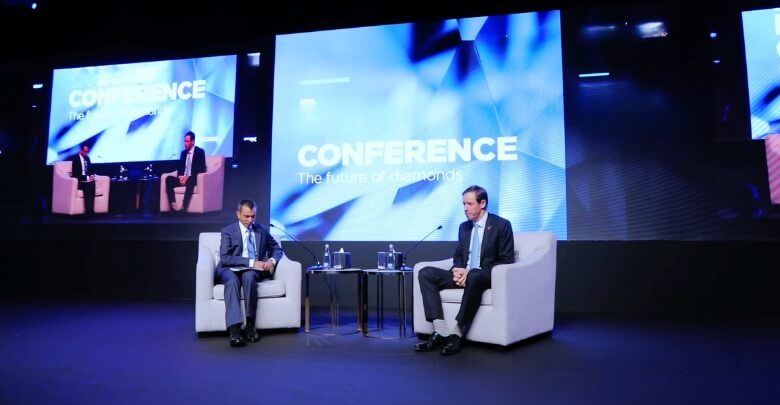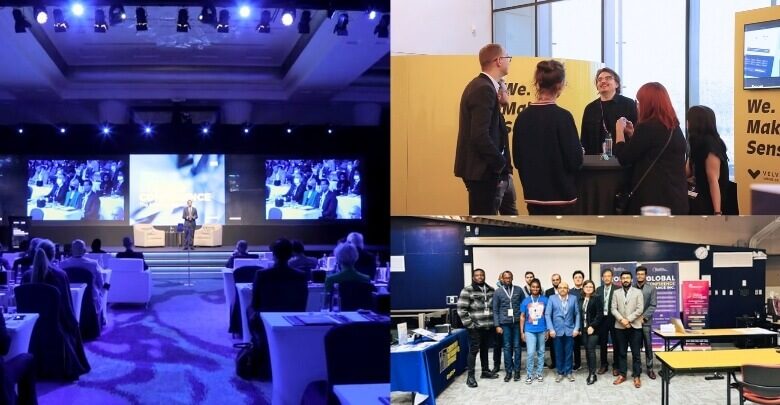Attending a business conference is a valuable opportunity to learn, network, and promote your business. However, it is also overwhelming and challenging, especially for those attending for the first time. If you’re one of them, then how to attend business conference?
To attend a business conference, register and pay a fee, plan your travel and accommodation. Prepare necessary materials and research the conference agenda and speakers to identify which sessions and events to attend.
In this article, we will provide a comprehensive guide to attending a business conference. Whether attending a small local conference or a prominent international summit, this guide will help you make the most of your conference attendance.
Importance of Business Conferences
Business conferences play a crucial role in individuals’ and organizations’ professional growth and development. It is considered business travel, as it helps to grow a business. There are several key reasons to assess the importance of attending business conferences and they are briefly discussed below.
Networking
Business conferences provide an excellent opportunity to network with industry professionals, potential customers, and partners. For example, the upcoming Business Management and Economic Conference in Canada will bring together a diverse range of people with similar interests and goals, providing a chance to connect and build relationships.
Learning
It offers a wealth of knowledge and expertise through keynote speeches, seminars, workshops, and panel discussions. Attendees can learn about new industry trends, techniques, and best practices applied to their businesses.
Branding
Business conferences are a cost-effective way to promote your business and build brand awareness. You can showcase your products or services and connect with potential customers and partners. Attending conferences also shows that you are actively involved in your industry and committed to staying up-to-date on the latest developments.
Motivation
Attending business conferences is a source of inspiration and motivation. Seeing successful industry leaders and hearing their stories help you stay focused and motivated to achieve your goals.
How to Attend Business Conference?
Business conferences are a great way to network, learn about industry trends, and stay up-to-date with the latest technologies and innovations. Whether you’re attending a conference for professional development, finding new clients, or expanding your knowledge, there are certain steps you can take to make the most out of your experience. Here are some tips on how to attend a business conference:

Step 1: Plan Ahead
Planning ahead is key to making the most of your business conference experience. Take the time to research the agenda, speakers, and other attendees. Setting specific goals will help you stay focused, and preparing questions in advance can lead to more meaningful conversations during the event.
Additionally, create a schedule of the sessions and activities that interest you most. Don’t forget to pack essential materials like business cards and brochures, which will make it easier to network and share your information with potential connections.
Step 2: Dress Appropriately
Your appearance is a key factor in how you are perceived at a conference. Dressing appropriately can set the tone for your interactions and help you feel more confident. Aim for business casual attire that reflects professionalism while allowing you to express your personal style.
Comfort is equally important, especially during long sessions. Choose clothing that is both stylish and easy to wear, so you can focus on the content and connections rather than adjusting your outfit. Feeling good in what you wear can improve your overall conference experience.
Step 3: Network Effectively
Networking is a key benefit of attending business conferences, offering you a chance to meet industry leaders and like-minded professionals. Take advantage of every opportunity to connect, whether it’s during scheduled social events or casual conversations over coffee. These interactions can lead to valuable relationships and insights.
Engaging in discussion groups and breakout sessions also enhances your networking experience. Share your thoughts, ask questions, and be open to learning from others. By actively participating, you not only expand your network but also enrich your knowledge of the industry.
Step 4: Engage in Sessions
Participating in conference sessions and workshops is essential for making the most of your experience. Don’t hesitate to ask questions or share your personal insights; your voice matters. Engaging in discussions not only deepens your knowledge but also enriches the collective knowledge of the group.
Additionally, actively connecting with other attendees can lead to meaningful relationships. You might find like-minded individuals who share your interests, paving the way for future collaborations and friendships that extend beyond the conference. Grab this opportunity to learn and grow.
Step 5: Take Notes
Taking notes during conference sessions is essential for capturing valuable insights and remembering key takeaways. Whether you prefer a classic notebook or a digital device, writing down your thoughts, questions, and ideas can help you improve your awareness and retention of the material presented.
After the conference, review and organize your notes to help solidify what you’ve learned. This practice not only aids in applying new knowledge but also prepares you for future conferences, ensuring you can build on your experiences and create even more successful events.
Step 6: Follow Up
Following up after a conference is essential for nurturing the relationships you’ve built. Reach out to the new contacts you made with personalized emails or LinkedIn messages, expressing your gratitude for their insights and time. This simple gesture can go a long way in establishing a relationship.
Additionally, consider sharing valuable information or insights you gained during the conference. Asking for their feedback not only keeps the conversation going but also shows that you value their perspective, creating a foundation for future collaboration.
How to Maximize The Conference Experience?
Attending a conference is an exciting and valuable experience for professionals. Conferences held in popular locations like Canada, Mexico, and the USA offer the opportunity to travel around the most scenic countries in the world. Many international attendees may be planning to attend a conference on business in Canada and enrich their career experience and knowledge. Below are some aspects of the conference experience to consider to maximize their experience.
- Navigating the Conference Floors: Once you arrive at the conference venue, get your bearings and find out where everything is located. This includes finding registration, session rooms, networking areas, and exhibitor booths.
- Attending Sessions: Conferences usually offer a variety of educational sessions, such as keynote speeches, breakout sessions, hands-on workshops, in-depth seminars, and interactive panel discussions. Take advantage of these opportunities to learn new information and gain insights from industry leaders.
- Elevator Pitches and Networking Strategies: It’s essential to have a clear and concise elevator pitch ready to introduce yourself to new people at the conference. Also, consider networking strategies such as identifying the key people you want to meet and connecting with them during the conference.
- Taking Advantage of Business Networking Events: Many conferences offer dedicated networking events, such as receptions, dinners, or meetups. Attend these events and use them to connect with new people and strengthen existing relationships.
- Using the Conference Hashtag and Following Trends: Social media is a valuable tool to stay connected during the conference. Use the conference hashtag to join the conversation, share your thoughts and insights, and stay updated with the latest trends and news.
Discuss Post-Conference Follow-Up
After attending a conference, follow up with contacts you made and continue to build those relationships. This is done through email or social media.
It’s also important to review any post-show content, such as session recordings or presentation slides, to refresh your memory on what you learned and identify any key takeaways. This information is shared with colleagues who were unable to attend the conference.
Sharing educational content also helps to reinforce your position as a thought leader in your industry and build your network. You can easily do that by creating blog posts or sharing content on social media.
Lastly, staying up-to-date on industry trends is important for maintaining a competitive edge. So, follow industry publications, attend webinars or other events, and connect with thought leaders in your field.
How To Obtain Post-Show Content And Educational Resources?
Obtaining post-show content and educational resources from a business conference or event is a great way to continue learning and networking even after the event has ended. Here are some suggestions for obtaining these resources:
- Check the conference website: Many conferences will post materials like presentations, handouts, and videos on their website after the event.
- Reach out to speakers: If there was a particular speaker or presentation you found valuable, consider contacting them directly to request any materials they have used.
- Connect with attendees: Networking with other attendees is also a great way to share knowledge and resources. Consider connecting with them on social media or email to discuss the event and exchange resources.
- Search online: Lastly, searching for articles, blog posts, and other content related to the event or industry can also provide valuable educational resources.
Must-Attend Business Conferences And Events
For international attendees, it is very important to select the right conference. Numerous must-attend business conferences and events provide valuable networking opportunities, educational sessions, and insights into industry trends. We suggest doing some research to choose the right business conference for your career growth. Here are a few examples of must-attend conferences and events. Take a look if one of these suits your criteria.
- Texas Conference for Employers: This two-day conference focuses on employment law, human resources, and best practices for managing employees. It is a great opportunity for HR professionals, business owners, and managers to stay up-to-date on employment regulations and network with peers.
- Bank Marketing Conference: This event brings together marketing professionals from the banking industry to discuss the latest marketing strategies and techniques for promoting financial products and services. Attendees can learn from experts in the field, gain new perspectives, and network with peers.
- Digital Marketing Conference: With the increasing importance of digital marketing, this conference provides valuable insights into the latest trends, tools, and techniques for successful online marketing. Attendees can learn about SEO, social media, content marketing, and more from leading experts in the field.
- Small-Business Conference: This one-day conference is designed for small-business owners and entrepreneurs. Attendees can gain valuable insights into starting and growing a successful business, learn about financing and marketing strategies, and network with peers.
Other Types of Business Events to Attend
Attending various types of business events can be beneficial for personal and professional growth. In addition to business conferences, other events can provide unique networking opportunities, learning, and growth opportunities. Below are some important events:
Industry Events
Industry events are specialized gatherings that bring together professionals within a specific industry or niche. These events often provide opportunities to network with industry leaders, learn about new technologies and trends, and gain insights from industry experts.
Business Networking Events
Business networking events create opportunities for professionals to connect, build relationships, and generate new business opportunities. These events include mixers, cocktail hours, or other informal gatherings.
Summits
Summits are high-level events that bring together thought leaders, experts, and professionals to discuss a particular topic or issue. These events often feature keynote speakers, panel discussions, and workshops to facilitate learning and networking.
- Digital Health Summit: A summit that explores the intersection of healthcare and technology, featuring experts in digital health, telemedicine, and AI.
- Adobe Summit: A conference for marketers, advertisers, and creative professionals that provides insights on digital experiences, customer data management, and content creation.
Expos
Expos are large-scale exhibitions where businesses and organizations showcase their products, services, and technologies. Attendees explore different booths and learn about the latest innovations in various industries. Below are some examples of expos:
- Berlin Expo: The Berlin Expo is an annual event that showcases a wide range of products and services from various industries, including automotive, construction, and electronics.
- E-commerce Berlin Expo: This expo is Europe’s largest e-commerce event, focusing on e-commerce technology, services, and marketing. Attendees can learn about the latest trends, tools, and strategies for growing their online businesses.
- ITB Berlin: ITB Berlin is the world’s leading travel trade show, featuring exhibitors from over 180 countries showcasing their travel products and services. Attendees can network with travel industry professionals, attend workshops, and learn about the latest trends in travel.
Frequently Asked Questions
Here’s a list of some commonly asked questions related to how to attend a business conference. our experts have provided answers to your queries.
What is the First Step to Attending a Business Conference?
The first step is to identify conferences relevant to your industry or professional goals. Once you’ve selected a conference, register early to secure your spot and take advantage of early-bird discounts if available.
How Do I Prepare for a Business Conference?
Prepare by reviewing the conference agenda, setting goals for what you want to achieve, and planning your travel and accommodation. Additionally, familiarize yourself with the speakers and sessions to prioritize the ones most relevant to your interests.
What Should I Bring to a Business Conference?
Bring essential items such as business cards, a notebook or electronic device for taking notes, and any necessary documents for registration. Comfortable clothing and professional attire, along with a charger for your devices, are also important.
How Do I Follow Up After the Conference?
Follow up by connecting with new contacts on LinkedIn or via email, referencing your meeting, and expressing interest in continuing the conversation. Additionally, review your notes and action items to implement any new ideas or strategies you learned.
How Can I Stay Engaged During a Long Conference?
Stay engaged by actively participating in sessions, taking breaks to recharge, and networking with other attendees. Use interactive tools provided by the conference platform, such as Q&A sessions or live polls, to remain involved.
Conclusion
Attending a business conference can be a transformative experience that opens doors to new opportunities and connections. By knowing “How to Attend Business Conference,” you can maximize your investment of time and resources, ensuring you gain valuable insights and expand your network.
As you prepare for your next conference, remember to approach it with curiosity and a willingness to engage. Every conversation and session has the potential to lead to fresh ideas and collaborations that can propel your career forward.
Ultimately, the effort you put into planning and participating will pay off in meaningful ways. Take advantage of the journey, and watch as your professional horizons expand in ways you never imagined.







